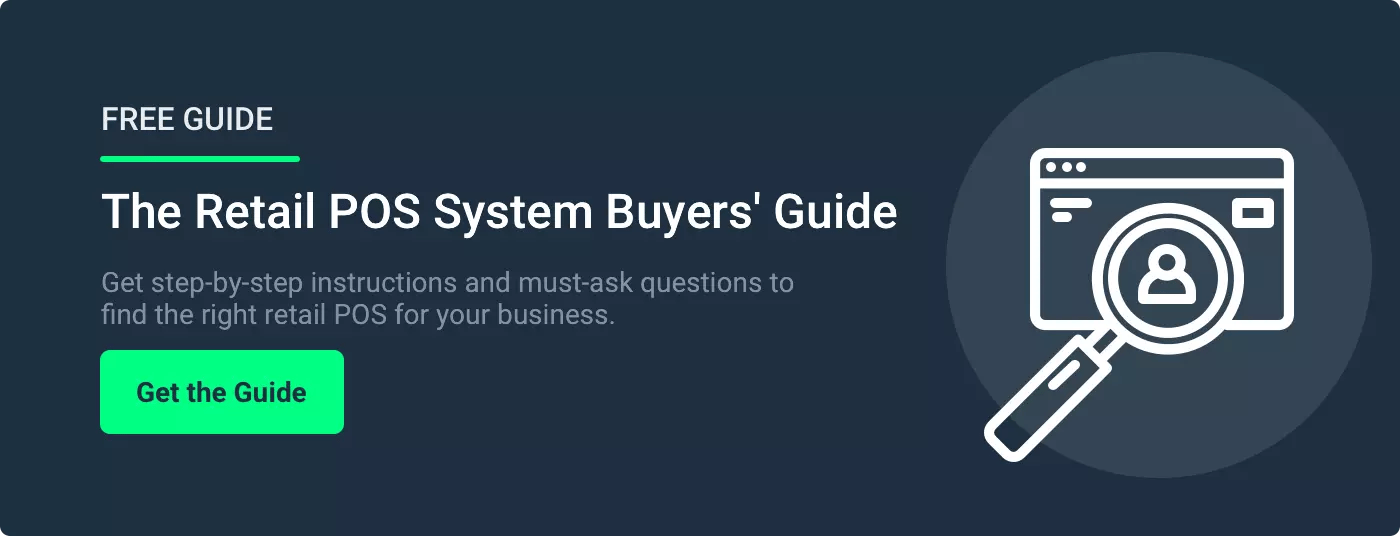Compared to personal credit cards, business credit cards offer some unique advantages, including potentially higher credit limits, attractive sign-on bonuses, and robust reporting features. And if you’re thinking about applying for a business credit card, there’s no better time than the present – interest rates are at a historic all-time low!
So, what steps do you need to follow to open a business credit card? It’s a relatively simple process that should only take a few minutes of your time. It goes without saying that a business credit card is a mission-critical element of any successful retail business, tobacco shop, or liquor store!
In this article, we’ll show you how to open a business credit card in four simple steps. Following the steps outlined below will help you and your business streamline the application process.
How to Open a Business Credit Card in 4 Easy Steps
Before we begin, it’s important that you take some time to self-reflect. Does your business really need a business credit card?
As a best practice, business owners and managers should absolutely separate their business and personal finances. For starters, this makes it much easier to keep track of your business expenses when tax season rolls around.
Secondly, separating business and personal finances limits your personal liability. Starting a new business is an inherently risky undertaking. When you add business loans to the equation, the seriousness of the situation is magnified tenfold. Keeping business and personal finances separate is the best way to prevent any personal loss should the business fold.
Are you ready to open a business credit card?
Here are four simple steps you can take to streamline the entire process.
1. Analyze Business Credit Card Fees and Structure
There are some basic business credit card requirements that you’ll need to consider before filling out the application.
Annual Percentage Rate (APR): This is the amount of interest that you must pay per year when you carry a monthly balance. Most business credit card providers offer 0% APR for the first year on activation.
Credit Card Rewards: Some business credit card providers offer attractive rewards in the form of points, cashback bonuses, or even airline miles. However, be cautious – some providers will actually charge an additional fee for enrollment into these rewards programs.
2. Choose the Best Card for Your Business
Next, understand that not all business credit cards are created equal. Some business credits are right for larger, more established businesses; other credit cards are purpose-made for new or scaling businesses.
As such, it’s important to understand the unique structure and lifecycle stage of your business. How will you be using the credit card? What are your financial objectives? What do you need the business credit card to do?
Don’t sign the dotted line without careful analysis of your business.
RELATED READING: Why Small Businesses Fail: 3 Top Factors
3. Collect Required Documents
Most business credit card providers will want to see some basic documentation. As a best practice, consider collecting the following:
- Annual business revenue
- Total number of employees
- Incorporation paperwork, including LLC registration, date, and name
- Estimated monthly spend
- Personal credit score
- Business address and contact information
- Your role within the business
- Tax industry type
- Tax identification number
4. Apply for the Business Credit Card
After gathering all of your documents, it’s time to apply for a business credit card. In most cases, the application process should only take a few minutes.
There are some great business credit cards out there from a variety of top-tier providers, including Capital One, VISA, American Express, Mastercard, and more. Again, be sure to read the fine print when it comes to business credit card structure, rewards, and more.
RELATED READING: Processing Credit Cards with a POS System
Partner With a Reputable Point of Sale System Provider
When it comes to facilitating business transactions, the last step is to organize and activate your payment processing. There are thousands of point of sale (POS) system providers out there, and finding the right POS solution for your business is critical in building and managing a successful business.
Unfortunately, not all POS systems are created equal. In fact, most providers overcharge and underdeliver. If you invest in the wrong solution, you could end up spending hundreds (or thousands) of dollars on a system that doesn’t align with your unique wants and needs. What’s worse is that you could end up overspending on a solution that doesn’t come with the features that you really need to attract new business and ring in sales.
To help you find the right solution for your business, we’ve created a simple guide: The Retail POS System Buyers’ Guide. In this guide, we give you the key intelligence you need to make an informed purchase decision.

